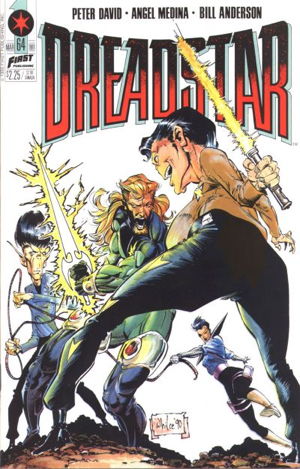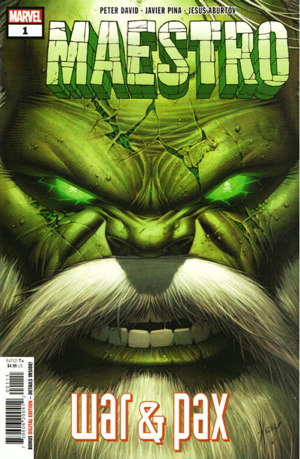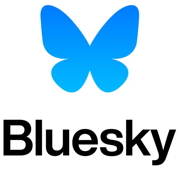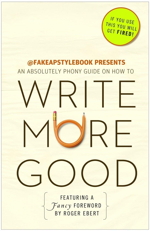Or “Mxyztplk,” if they’re writing about the Golden Age version.
Okay, let’s see if I can run through a couple of more comments left back in Ye Olden Tymes (i.e. last August):
Wayne sallies…um, in a forward-moving direction with
“Mike, I will send you five dollars in cash if you write a post on the Heckler.”
I AM NOT ABOVE BRIBERY. However, I don’t think I’d read the Heckler since…well, probably when that series was released in the early ’90s. But I did buy every issue, though I’m reasonably certain I gave up my copies to my shop‘s back issue bins when I opened up in 2014. and I just checked, and The Heckler isn’t on the DC Universe app.
But never fear, as I think those comics may yet still linger in the bins awaiting my retrieval. Therefore, Wayne, I will attempt to read the series and see if I have anything to say here about it. A quick look at the Wiki entry reveals…nothing I can recall from the comic, save for his nemesis “John Doe,” but I might only remember him because he’s on one of the covers. Ah well, I guess it’ll be like reading brand new comics to me.
David Conner continues with
“The mention of Peter David’s Supergirl and Aquaman got me thinking, is there any other writer from the last 40-odd years who feels more ‘of his time’ than Peter David?
“I *loved* his stuff in the ’80s and ’90s, but looking back at it today, it’s more often than not cringe-inducing (using that term which I generally hate advisedly.)”
First off, let me just say it’s high time my browser’s spellchecker stops flagging words like “Supergirl” and “Aquaman.” I mean, I suppose I can add them to the dictionary myself, but whoever programs these things might as well just dump all the superhero names they can into whatever file they go into. Help the world spell “Mxyzptlk” correctly!
 But to David’s actual point…yeah, I see where you’re getting at. I have to admit, I’m a bit more charitably inclined towards Mr. David’s writings than the opinions of some of my fellow comics-noscenti. I think his Hulk work still stands up, for example, and his Dreadstar was fun (save for that two-issue bit where he was parodying Trek…oof). And there is other stuff he’s written here and there that I’ve liked, such as Fallen Angel and, yes, Aquaman. Supergirl was a weirdie, mostly because of the premise, but I’d read and liked the whole run. His Star Trek was genuinely great, something of a miracle considering the editorial interference he often faced.
But to David’s actual point…yeah, I see where you’re getting at. I have to admit, I’m a bit more charitably inclined towards Mr. David’s writings than the opinions of some of my fellow comics-noscenti. I think his Hulk work still stands up, for example, and his Dreadstar was fun (save for that two-issue bit where he was parodying Trek…oof). And there is other stuff he’s written here and there that I’ve liked, such as Fallen Angel and, yes, Aquaman. Supergirl was a weirdie, mostly because of the premise, but I’d read and liked the whole run. His Star Trek was genuinely great, something of a miracle considering the editorial interference he often faced.
When I think of a certain comic creator being “of his time,” the one that comes to mind for me is Don McGregor, a writer who came to prominence in the ’70s and his very text-heavy work is what I picture when I think of “1970s comics.” Now that’s just a matter of my particular perception, as the man’s still working today, but I think of 1970s comics, in comparison to modern books, as having a lot more captions and dialogue, and I associate McGregor with that particular style.
Now David’s work…I think a primary criticism aimed at his comics is the level of self-aware, and of a certain measure self-satisfied, “cleverness” to his writing. Sometimes it can be subtle-ish (the “brush with Death” in Incredible Hulk), sometimes it can be laid on a bit thick (that Trek parody in Dreadstar I’d mentioned) and as with most humorous and/or clever writing, Your Mileage May Vary. It may be that this sort of thing didn’t age well, with it seeming New and Fresh at the time, but as the years have passed and writing styles and trends and tastes have changed in comics, looking back reveals the some of the obviousness of the artifice. Much in the same way we look back at Alan Moore’s early work and kinda wince a little at some of those scene transitions (which, to be fair, folks were kinda gripin’ about even back then — like in Killing Joke where we see a “Fat Lady” poster at the circus, and then we move to the Joker’s memory of his pregnant wife. Hoo boy).
I would say something like your reaction to David’s writing, David [Conner], is different from something like Stan Lee’s writing in the 1960s. That is Very Much of Its Time, but it may be more that Lee’s style defined that time and is considered perfectly acceptable, versus people trying to write “for the hip kids” back then whose writing did not age quite as well (cough cough 1960s Teen Titans cough). Before The World’s Biggest 1960s Teen Titans Fan gets mad at me, those are fine, the art’s beautiful, but you have to admit that DC’s “hello, fellow kids” scripting house style was clunky as all get out, rarely reaching the masterful level of smarm Lee was able to churn out.
 David’s work of late, revising the Maestro character from the Hulk, and Genis from his run of Captain Marvel, seem to have been reasonably well received. I didn’t read the Genis title, despite having read and enjoyed those CMs, only because I’m so backlogged with comics I try not to add more titles unless I absolutely have to. That said, having been a Hulk reader for decades, I of course picked up the Maestro titles, and I think they’re a perfectly fine extension of the character’s story. Nothing in there struck me as being overly…Peter David-y, in the sense of what people who don’t care for his previous work don’t care for.
David’s work of late, revising the Maestro character from the Hulk, and Genis from his run of Captain Marvel, seem to have been reasonably well received. I didn’t read the Genis title, despite having read and enjoyed those CMs, only because I’m so backlogged with comics I try not to add more titles unless I absolutely have to. That said, having been a Hulk reader for decades, I of course picked up the Maestro titles, and I think they’re a perfectly fine extension of the character’s story. Nothing in there struck me as being overly…Peter David-y, in the sense of what people who don’t care for his previous work don’t care for.
Now New Fantastic Four maaay be a bit much for those same people, with the banter amongst the main characters and a particular gag involving another character’s name. I picked up this series too (what with the Hulk being in there, and the FF tie-in as well) but I’m only a couple of issues in, since it hasn’t felt quite as compelling a read as the Maestro books have been. Eh, what can you do.
I do still think David’s Hulk run remains a high point in that character’s history, and I still have fond memories of much of his other work. However, I do realize if I go back and reread some of it, I may find myself in a similar position of being more aware of the seams now that some time has passed. Or I may enjoy it just fine for what it is, even if it is an artifact of the period in which it was produced. (Remember “wilding?”)
But you know what? Peter David got this dirty joke into a Popeye comic and I can’t hate him for it.








…”David’s writing…is different from something like Stan Lee’s writing in the 1960s. That is Very Much of Its Time…”
———-
As someone who was both a Gen Xer and a DC fan growing up in the ’80s, I had read very, very little of Stan Lee’s work. I obviously knew who he was, but until a few years ago, I could probably count on one hand the number of Stan Lee-written comics that I read and still have a few fingers left over.
But I spent a small fortune the last five years or so to buy most of the Silver Age Marvel Omnibuses (mostly for the Kirby artwork), and as I started to read them…wow. I guess it’s kinda like pre-Daniel Craig James Bond films where, if you didn’t grow up with them and they didn’t become part of your DNA as a child, engaging with them objectively for the first time as an adult is an odd experience.
Like the early Bonds, it’s possible to see how and why people of the time responded so well to Lee’s writing in the ’60s, but (like the early Bonds) it’s just not good. Not good at all. Very cloying, off-putting prose style, and zero sense of story structure. That first Fantastic Four omnibus is a chore to get through (beautiful Kirby art notwithstanding). Stories go nowhere, they end abruptly. The more “realistic” character development that Marvel has been praised for over the years is paper thin to non-existent. While there are clearly some interesting *ideas* in those ’60s comics, the stories themselves are terrible (again, the Kirby artwork is gorgeous though).
Whereas, as goofy as Silver Age DC was, those stories at least had a solid narrative structure, with each story having a clear beginning, middle, and an end, as well as a clear narrative logic (as goofy as that logic might have been). The prose style was pedantic most of the time, but there was at least a clarity to it. And while no one would argue that Silver Age DC had anything approaching character development, at least the characters were clearly defined archetypes.
Not to put all of this on Lee. I’ve read Kirby’s Fourth World books, and again, mostly beautiful artwork notwithstanding (insert obligatory comment about COlletta’s inks and Curt Swan redrawn Superman and Jimmy Olsen faces), those books had some very creaky story structure as well.
Big fan of THE HECKLER back in the day, and it’s sudden collapse and cancellation still hurts a little. Utter gleeful chaos, the closest we’ve ever come to “If Bugs Bunny was a superhero.”
He returned in the recent ONE-STAR SQUADRON mini, alongside other forgotten heroes (no, not those Forgotten Heroes) — at least there was some guy calling himself “The Heckler” while wearing a somewhat similar costume.
Someone get Mike the 6 Heckler comics!
“Mike, meet…THE FLYING BUTTRESS!”
Another 5 bucks for an in depth analysis of Vext. I can’t wait for the voluminous text awaiting me.
philfromgermany:
I’ve never read the Heckler comics (although I picture it as Giffen doing a Ditko-esque character…or maybe the name “Heckler” just sounds like it should have been the name of a Ditko character) but there was another character called “The Flying Buttress” who appeared in the Dial “H” for Hero series in Adventure Comics which ran between 1981-82 somewhere in one of the issues between no. 479-490.
I don’t think Stan Lee –and Marvel Comics–really hit his stride until the mid-’60s. Also, I think if you look at it in terms of generations of writers, the two writers at DC in the early ’60s who were evolving DC Comics from being crushingly boring would be Arnold Drake and Bob Haney–just as Stan Lee was evolving Marvel Comics (and, interestingly, they were all born within a few years of each other–Lee in 1922; Drake in 1924, Haney in 1926). And just as Lee had Kirby and Ditko providing dynamic art in the early days of Marvel Comics, Drake had Bruno Premiani’s slick, clean art on Doom Patrol, and Haney had Nick Cardy’s gorgeous art on Teen Titans. By contrast, a lot of other early ’60s DC Comics had generally boring and static art — like Curt Swan; Mike Sekowsky, Sheldon Moldoff ghosting for Bob Kane. Probably Gil Kane, Carmine Infantino, Ross Andru, Russ Heath, and Joe Kubert (along with Premiani and Cardy) were among a handful of dynamic artists at DC at a time when blandness was the norm. I also think Drake and Haney’s stories stand the test of time in terms of being fun and having great entertainment value despite –and maybe even because of–the goofy attempts at hip lingo. Also of note, Drake studied journalism at the University of Missouri and New York University; Haney, after WW II, earned a Master’s degree from Columbia University. They also both produced work outside of comics–Drake wrote the screenplays for “The Flesh Eaters” and “Who Killed Teddy Bear,” and Haney wrote novels under assumed names.
As to the early Bonds not being good–I have to disagree. The Sean Connery Bond films are the best Bond films. He nailed the character–and the films were actually made within a decade of the character’s creation–during the Cold War. Also, the films were never supposed to be taken that seriously–only as escapist entertainment. Beyond that, they’re a product of the times–just as Stan Lee’s ’60s Marvel Comics were. But I have to say, the last Bond film with Craig was awful.
One thing I will agree with is that Lee gets way too much credit for being a “great creator” when he really wasn’t. Kirby was the guy bursting with ideas and concepts and characters. Lee was much more of a recycler of the ideas of others (The Human Torch; The Angel; Black Widow) and/or a repurposer of character names from heroes from defunct publishers from the Golden Age which had fallen into the public domain i.e. Daredevil; Doctor Doom; Electro; Captain Marvel; The Owl; etc. Even the whole famous “With great power comes great responsibility” line was more or less lifted by Lee from the 1948 Superman serial starring Kirk Alyn as Clark Kent/Superman. In the Superman serial, Pa Kent tells Clark that “because of these great powers—your speed and strength, your x-ray vision and super-sensitive hearing—you have a great responsibility.” But Lee should get credit for building a shared universe of characters and generating buzz by having characters appear in each other’s stories at a time when DC Comics rarely did that.
But then, too, putting all of this into context, in the Golden and Silver Ages of comics, few if any of the writers and artists thought that their work would be subjected to serious scrutiny decades down the road. They were just churning out entertainment for kids.
I’m not entirely certain, but I think the Heckler was one of the pallbearer’s at Booster Gold’s fake funeral in 52.
And I know this wasn’t a thing back then, but a trade of THE HECKLER likely would have sold pretty decent.
Five dollars, in nickels, coming to area code 805 in the next few days.
All six issues here:
https://readcomiconline.li/Comic/Heckler
Peter David’ & Dale Keown’s Hulk comics got me hooked on the medium. I’m unhappy to report that I agree with you about David’s writing, and that I’m appalled by what he said about Romani people a few years ago. Still, David’s Hulk & X-Factor (v1) were formative comics for me, and made me appreciate just how much a writer brought to comics. For many years, his name was enough to get me to check out a series. I liked Supergirl and Aquaman for awhile, although I bailed a few years into each. I think Fallen Angel is his best work outside of Hulk, and I wish there had been more. I may not love his work like I used to, but I’m glad it entertained me as long as it did, and opened my eyes to the fact that comic book writing could be as good as the art.
“Don McGregor”
OH MY GOD could that man over-write ANYTHING. Saber looked really, really cool, though.
Mike Loughlin: “David’s writing, and that I’m appalled by what he said about Romani people a few years ago.”
oh my, I don’t think I heard about that.
I have Hulk: The End on my shelf to read sometime. I enjoyed Incredible Hulk for most of the run he wrote, and his Star Trek was very good! Probably not as good as the Mike W. Barr (I think) run it started with.
Sean Mageean – thanks for pointing that out. Apparently the character reappears in Superboy and the Ravers, of all places, a short series which I read only a few years ago. Couldn’t remember the character for life of me, though. But I’ll try to get my hands on those Dial H, to contrast and compare.
Snark Shark:
Maybe Don McGregor can be accused of over-writing, but I still find his Black Panther, Killraven, Sabre, Detectives, Inc., and Nathaniel Dusk stories to be among my favorite comics reading experiences–and fortunately he almost always had great artists illustrating his scripts–Paul Gulacy, Billy Graham, Gene Colan, Rich Buckler, Marshall Rogers, etc.
Also, a lot of modern comics seem under-written with way too much decompressed storytelling at inflated prices.
With a McGregor–or Gerber, Starlin, Englehart, Thomas–comic from the ’70s-’80s you were generally guaranteed a great–and sometimes even thought provoking–reading experience at a fair price.
philfromgermany:
I hope you aren’t disappointed–the characters that appeared in the ’80s iteration of Dial “H” stories were all created by fan suggestion–although, as I recall, Harlan Ellison created a character. So, the Dial “H” Flying Buttress is probably a lot blander than The Heckler’s Flying Buttress character. Probably the best thing about those Adventure Comics featuring Dial “H” is that issues no. 484-486, and no. 490 all have great George Perez cover art.
I hadn’t heard about PAD and the Romani thing – YIKES – but his appeal to pay off his IRS debt a while back struck me as literally incredible.
Sean Mageean: “Also, a lot of modern comics seem under-written with way too much decompressed storytelling at inflated prices.”
THAT, I completely agree with. It’s the main reason I only buy about 3 new comics a month.
“With a McGregor–or Gerber, Starlin, Englehart, Thomas–comic from the ’70s-’80s you were generally guaranteed a great–and sometimes even thought provoking–reading experience at a fair price.”
I’m a HUGE fan of Starlin, and I like the others listed to varying degrees. I did like WAR OF THE WORLDS a fair amount.
Snark Shark:
Yes, I think Killraven/War of the Worlds was a fun and entertaining read, even if it was early days for McGregor and he sometimes had an inclination to over-write…at least he had an inclusive, humanist message to relate. Also, there were a lot of great artists on the series …Herb Trimpe, Gene Colan, P.Craig Russell…
On a related note, Cartoonist Kayfabe did a great episode in the last few days on Master of Kung Fu, and how much Moench and Gulacy brought to that comic…a classic MoKF issue (or many other classic Marvel Bronze Age Comics as well) is like an engrossing 30 minute read…modern comics are generally 10 minute reads…I think there’s been a lot of devolution (“Are we not men? We are DEVO!”) of the medium…probably Image Comics started the downward spiral…with over-hyped art and low story content…
Also, I would say that–love him or hate him–it was really Roy Thomas who started the trend of Bronze Age Marvel Comics being saturated in what some would consider “over-writing”… McGregor and others were just following his example…but personally, I think reading Roy Thomas written comics as a kid–like The Invaders–increased my vocabulary and got me interested in WW II history…so, there’s something to be said for that. I also loved Mantlo and Golden’s first 12 issues of Micronauts as a kid…I found them much more enjoyable than Marvel’s Star Wars comics…